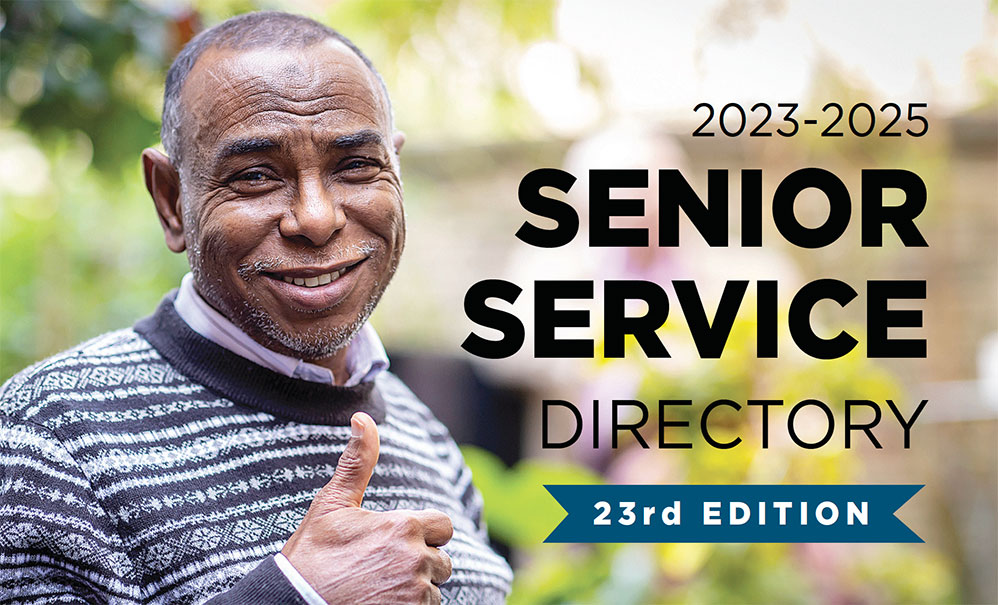
Caregiving and Eldercare Assistance
This directory offers assistance in finding practical help for older adults and their caregivers. Research shows that caregivers do a better job of caring for others if they make use of community services and take some time off, often called respite.
The Office on Aging, (865) 524-2786; Senior Information & Referral, (865) 546-6262; and the East TN Area Agency on Aging & Disability, (865) 251-4897 offer information, referrals, and assistance about available resources such as respite, home modification, safety devices, adult day programs, and in-home services.
“Activities of Daily Living” and “Instrumental Activities of Daily Living” (ADLs and IADLs) are terms used by social workers, health-care professionals, and insurance policies. ADLs are functions that healthy people can perform but that sick or frail people may need help with. ADLs include eating, bathing, grooming, dressing, toileting, walking, and transferring (from bed to chair, in and out of bath, etc.).
IADLs include preparing meals, shopping, managing money, using the telephone, housework (light and heavy), driving, or using public transportation. IADLs also include remembering to take daily prescribed medications.
Caregivers often don’t know what causes a behavioral change in the older person they care for (for example, the older person seems sad or depressed for long periods of time, is confused, or is irrational), what to expect next, or what can be done. A geriatric assessment program offers explanations and recommendations. Mental and behavioral changes can arise from disease, poor nutrition, reactions to medications, and the stress of major life changes, such as leaving the family home or a death in the family.
Assessment programs administer a variety of medical, psychological, and cognitive tests. Staff members interview both the older person and the involved family members. Professionals, including physicians, nurses, social workers, and psychologists make recommendations based on the test results. They explain the results, help the family plan, and suggest services. Geriatric care managers can do a somewhat simpler assessment.
Many caregivers handle all of the everyday tasks for an older person, while also working outside the home. Therefore, organization and keeping track of paperwork are essential. For information about other caregiver resources and support groups, contact Senior Information & Referral, 546-6262.
This directory offers specific resources for those who are living with and/or caring for someone with Alzheimer’s Disease or related dementias. The Family Caregiver Support section lists other helpful resources for caregivers of older persons.
Support groups for caregivers provide valuable information and emotional and psychological support, as well as offer a chance to share experiences and learn practical solutions to common problems. If you cannot join a group or start your own, remember how important it is to talk with understanding and supportive people about your caregiving experience. Online support groups are an option for those who are homebound for health or caregiving reasons.
If no one is available to help you find services or manage personal and financial affairs, or if older relatives don’t have family members who can provide assistance, help is available. For a fee, certified geriatric care managers, some CPA firms, and bank trust departments can provide assistance.
Eldercare assistance starts with a comprehensive assessment to develop a plan to arrange for services and regular visits; coordinate medical, legal, and financial services; and report to the family, when appropriate. If you are helping an older person who can no longer manage his or her own financial affairs, you should report this to Social Security and apply for Representative Payee status.
Eldercare assistance providers can charge hourly, flat, or monthly rates; some also require a retainer. If financial management is needed, a mentally competent individual can sign a power of attorney to give a designated agent the legal authority to handle all or specific financial matters. In most cases, the first choice is a family member. If the designated family member is not local, he or she still can hire and fire others to help, as appropriate.
If there are no suitable family members available, arrangements can be made for the eldercare assistant to handle finances by giving power of attorney and setting up a separate bank account with deposits made by the older person or family on a regular basis. CPA firms that offer eldercare assistance can pay bills out of a retainer, with reimbursement on an agreed-upon basis. When an eldercare assistant has financial oversight, bonding is strongly recommended.
When choosing an eldercare assistance provider, ask for and check references, require bonding and insurance, and develop a contract detailing duties, hours, reporting, payment, and expectations.